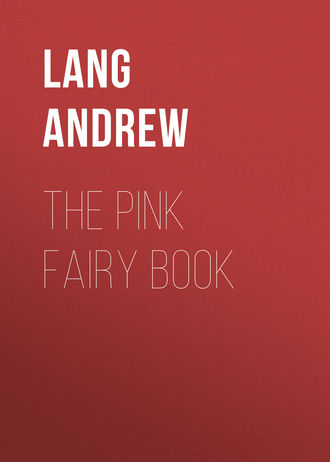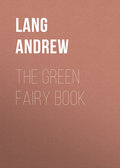
Lang Andrew
The Pink Fairy Book
Master and Pupil
From the Danish
There was once a man who had a son who was very clever at reading, and took great delight in it. He went out into the world to seek service somewhere, and as he was walking between some mounds he met a man, who asked him where he was going.
‘I am going about seeking for service,’ said the boy.
‘Will you serve me?’ asked the man.
‘Oh, yes; just as readily you as anyone else,’ said the boy.
‘But can you read?’ asked the man.
‘As well as the priest,’ said the boy.
Then I can’t have you,’ said the man. ‘In fact, I was just wanting a boy who couldn’t read. His only work would be to dust my old books.’
The man then went on his way, and left the boy looking after him.
‘It was a pity I didn’t get that place,’ thought he ‘That was just the very thing for me.’
Making up his mind to get the situation if possible, he hid himself behind one of the mounds, and turned his jacket outside in, so that the man would not know him again so easily. Then he ran along behind the mounds, and met the man at the other end of them.
‘Where are you going, my little boy?’ said the man, who did not notice that it was the same one he had met before.
‘I am going about seeking for service?’ said the boy.
‘Will you serve me?’ asked the man.
‘Oh, yes; just as readily you as anyone else,’ said the boy.
‘But can you read?’ said the man.
‘No, I don’t know a single letter,’ said the boy.
The man then took him into his service, and all the work he had to do was to dust his master’s books. But as he did this he had plenty of time to read them as well, and he read away at them until at last he was just as wise as his master – who was a great wizard – and could perform all kinds of magic. Among other feats, he could change himself into the shape of any animal, or any other thing that he pleased.
When he had learned all this he did not think it worth while staying there any longer, so he ran away home to his parents again. Soon after this there was a market in the next village, and the boy told his mother that he had learned how to change himself into the shape of any animal he chose.
‘Now,’ said he, ‘I shall change myself to a horse, and father can take me to market and sell me. I shall come home again all right.’
His mother was frightened at the idea, but the boy told her that she need not be alarmed; all would be well. So he changed himself to a horse, such a fine horse, too, that his father got a high price for it at the market; but after the bargain was made, and the money paid, the boy changed again to his own shape, when no one was looking, and went home.
The story spread all over the country about the fine horse that had been sold and then had disappeared, and at last the news came to the ears of the wizard.
‘Aha!’ said he, ‘this is that boy of mine, who befooled me and ran away; but I shall have him yet.’
The next time that there was a market the boy again changed himself to a horse, and was taken thither by his father. The horse soon found a purchaser, and while the two were inside drinking the luck-penny the wizard came along and saw the horse. He knew at once that it was not an ordinary one, so he also went inside, and offered the purchaser far more than he had paid for it, so the latter sold it to him.
The first thing the wizard now did was to lead the horse away to a smith to get a red-hot nail driven into its mouth, because after that it could not change its shape again. When the horse saw this it changed itself to a dove, and flew up into the air. The wizard at once changed himself into a hawk, and flew up after it. The dove now turned into a gold ring, and fell into a girl’s lap. The hawk now turned into a man, and offered the girl a great sum of money for the gold ring, but she would not part with it, seeing that it had fallen down to her, as it were, from Heaven. However, the wizard kept on offering her more and more for it, until at last the gold ring grew frightened, and changed itself into a grain of barley, which fell on the ground. The man then turned into a hen, and began to search for the grain of barley, but this again changed itself to a pole-cat, and took off the hen’s head with a single snap.
The wizard was now dead, the pole-cat put on human shape, and the youth afterwards married the girl, and from that time forward let all his magic arts alone.
The Golden Lion
Sicilianische Mahrchen. L. Gonzenbach
There was once a rich merchant who had three sons, and when they were grown up the eldest said to him, ‘Father, I wish to travel and see the world. I pray you let me.’
So the father ordered a beautiful ship to be fitted up, and the young man sailed away in it. After some weeks the vessel cast anchor before a large town, and the merchant’s son went on shore.
The first thing he saw was a large notice written on a board saying that if any man could find the king’s daughter within eight days he should have her to wife, but that if he tried and failed his head must be the forfeit.
‘Well,’ thought the youth as he read this proclamation, ‘that ought not to be a very difficult matter;’ and he asked an audience of the king, and told him that he wished to seek for the princess.
‘Certainly,’ replied the king. ‘You have the whole palace to search in; but remember, if you fail it will cost you your head.’
So saying, he commanded the doors to be thrown open, and food and drink to be set before the young man, who, after he had eaten, began to look for the princess. But though he visited every corner and chest and cupboard, she was not in any of them, and after eight days he gave it up and his head was cut off.
All this time his father and brothers had had no news of him, and were very anxious. At last the second son could bear it no longer, and said, ‘Dear father, give me, I pray you, a large ship and some money, and let me go and seek for my brother.’
So another ship was fitted out, and the young man sailed away, and was blown by the wind into the same harbour where his brother had landed.
Now when he saw the first ship lying at anchor his heart beat high, and he said to himself, ‘My brother cannot surely be far off,’ and he ordered a boat and was put on shore.
As he jumped on to the pier his eye caught the notice about the princess, and he thought, ‘He has undertaken to find her, and has certainly lost his head. I must try myself, and seek him as well as her. It cannot be such a very difficult matter.’ But he fared no better than his brother, and in eight days his head was cut off.
So now there was only the youngest at home, and when the other two never came he also begged for a ship that he might go in search of his lost brothers. And when the vessel started a high wind arose, and blew him straight to the harbour where the notice was set.
‘Oho!’ said he, as he read, ‘whoever can find the king’s daughter shall have her to wife. It is quite clear now what has befallen my brothers. But in spite of that I think I must try my luck,’ and he took the road to the castle.
On the way he met an old woman, who stopped and begged.
‘Leave me in peace, old woman,’ replied he.
‘Oh, do not send me away empty,’ she said. ‘You are such a handsome young man you will surely not refuse an old woman a few pence.’
‘I tell you, old woman, leave me alone.’
‘You are in some trouble?’ she asked. ‘Tell me what it is, and perhaps I can help you.’
Then he told her how he had set his heart on finding the king’s daughter.
‘I can easily manage that for you as long as you have enough money.’
‘Oh, as to that, I have plenty,’ answered he.
‘Well, you must take it to a goldsmith and get him to make it into a golden lion, with eyes of crystal; and inside it must have something that will enable it to play tunes. When it is ready bring it to me.’
The young man did as he was bid, and when the lion was made the old woman hid the youth in it, and brought it to the king, who was so delighted with it that he wanted to buy it. But she replied, ‘It does not belong to me, and my master will not part from it at any price.’
‘At any rate, leave it with me for a few days,’ said he; ‘I should like to show it to my daughter.’
‘Yes, I can do that,’ answered the old woman; ‘but to-morrow I must have it back again. And she went away.
The king watched her till she was quite out of sight, so as to make sure that she was not spying upon him; then he took the golden lion into his room and lifted some loose boards from the floor. Below the floor there was a staircase, which he went down till he reached a door at the foot. This he unlocked, and found himself in a narrow passage closed by another door, which he also opened. The young man, hidden in the golden lion, kept count of everything, and marked that there were in all seven doors. After they had all been unlocked the king entered a lovely hall, where the princess was amusing herself with eleven friends. All twelve girls wore the same clothes, and were as like each other as two peas.
‘What bad luck!’ thought the youth. ‘Even supposing that I managed to find my way here again, I don’t see how I could ever tell which was the princess.’
And he stared hard at the princess as she clapped her hands with joy and ran up to them, crying, ‘ Oh, do let us keep that delicious beast for to-night; it will make such a nice plaything.’
The king did not stay long, and when he left he handed over the lion to the maidens, who amused themselves with it for some time, till they got sleepy, and thought it was time to go to bed. But the princess took the lion into her own room and laid it on the floor.
She was just beginning to doze when she heard a voice quite close to her, which made her jump. ‘O lovely princess, if you only knew what I have gone through to find you!’ The princess jumped out of bed screaming, ‘The lion! the lion!’ but her friends thought it was a nightmare, and did not trouble themselves to get up.
‘O lovely úprincess!’ continued the voice, ‘fear nothing! I am the son of a rich merchant, and desire above all things to have you for my wife. And in order to get to you I have hidden myself in this golden lion.’
‘What use is that?’ she asked. ‘For if you cannot pick me out from among my companions you will still lose your head.’
‘I look to you to help me,’ he said. ‘I have done so much for you that you might do this one thing for me.’
‘Then listen to me. On the eighth day I will tie a white sash round my waist, and by that you will know me.’
The next morning the king came very early to fetch the lion, as the old woman was already at the palace asking for it. When they were safe from view she let the young man out, and he returned to the king and told him that he wished to find the princess.
‘Very good,’ said the king, who by this time was almost tired of repeating the same words; ‘but if you fail your head will be the forfeit.’
So the youth remained quietly in the castle, eating and looking at all the beautiful things around him, and every now and then pretending to be searching busily in all the closets and corners. On the eighth day he entered the room where the king was sitting. ‘Take up the floor in this place,’ he said. The king gave a cry, but stopped himself, and asked, ‘What do you want the floor up for? There is nothing there.’
But as all his courtiers were watching him he did not like to make any more objections, and ordered the floor to be taken up, as the young man desired. The youth then want straight down the staircase till he reached the door; then he turned and demanded that the key should be brought. So the king was forced to unlock the door, and the next and the next and the next, till all seven were open, and they entered into the hall where the twelve maidens were standing all in a row, so like that none might tell them apart. But as he looked one of them silently drew a white sash from her pocket and slipped it round her waist, and the young man sprang to her and said, ‘This is the princess, and I claim her for my wife.’ And the king owned himself beaten, and commanded that the wedding feast should be held.
After eight days the bridal pair said farewell to the king, and set sail for the youth’s own country, taking with them a whole shipload of treasures as the princess’s dowry. But they did not forget the old woman who had brought about all their happiness, and they gave her enough money to make her comfortable to the end of her days.
The Sprig of Rosemary
Cuentos Populars Catalans, per lo Dr. D. Francisco de S. Maspons y Labros (Barcelona: Libreria de Don Alvar Verdaguer 1885).
Once upon a time there lived a man with one daughter and he made her work hard all the day. One morning when she had finished everything he had set her to do, he told her to go out into the woods and get some dry leaves and sticks to kindle a fire.
The girl went out, and soon collected a large bundle, and then she plucked at a sprig of sweet-smelling rosemary for herself. But the harder she pulled the firmer seemed the plant, and at last, determined not to be beaten, she gave one great tug, and the rosemary remained in her hands.
Then she heard a voice close to her saying, ‘Well?’ and turning she saw before her a handsome young man, who asked why she had come to steal his firewood.
The girl, who felt much confused, only managed to stammer out as an excuse that her father had sent her.
‘Very well,’ replied the young man; ‘then come with me.’
So he took her through the opening made by the torn-up root, and they travelled till they reached a beautiful palace, splendidly furnished, but only lighted from the top. And when they had entered he told her that he was a great lord, and that never had he seen a maiden so beautiful as she, and that if she would give him her heart they would be married and live happy for ever after.
And the maiden said ‘yes, she would,’ and so they were married.
The next day the old dame who looked after the house handed her all the keys, but pointed her out one that she would do well never to use, for if she did the whole palace would fall to the ground, and the grass would grow over it, and the damsel herself would be remembered no more.
The bride promised to be careful, but in a little while, when there was nothing left for her to do, she began to wonder what could be in the chest, which was opened by the key. As everybody knows, if we once begin to think we soon begin to do, and it was not very long before the key was no longer in the maiden’s hand but in the lock of the chest. But the lock was stiff and resisted all her efforts, and in the end she had to break it. And what was inside after all? Why, nothing but a serpent’s skin, which her husband, who was, unknown to her, a magician, put on when he was at work; and at the sight of it the girl was turning away in disgust, when the earth shook violently under her feet, the palace vanished as if it had never been, and the bride found herself in the middle of a field, not knowing where she was or whither to go. She burst into a flood of bitter tears, partly at her own folly, but more for the loss of her husband, whom she dearly loved. Then, breaking a sprig of rosemary off a bush hard by, she resolved, cost what it might, to seek him through the world till she found him. So she walked and she walked and she walked, till she arrived at a house built of straw. And she knocked at the door, and asked if they wanted a servant. The mistress said she did, and if the girl was willing she might stay. But day by day the poor maiden grew more and more sad, till at last her mistress begged her to say what was the matter. Then she told her story – how she was going through the world seeking after her husband.
And her mistress answered her, ‘Where he is, none can tell better than the Sun, the Moon, and the Wind, for they go everywhere!’
On hearing these words the damsel set forth once more, and walked till she reached the Golden Castle, where lived the Sun. And she knocked boldly at the door, saying, ‘All hail, O Sun! I have come to ask if, of your charity, you will help me in my need. By my own fault have I fallen into these straits, and I am weary, for I seek my husband through the wide world.’
‘Indeed!’ spoke the Sun. ‘Do you, rich as you are, need help? But though you live in a palace without windows, the Sun enters everywhere, and he knows you.’
Then the bride told him the whole story. and did not hide her own ill-doing. And the Sun listened, and was sorry for her; and though he could not tell her where to go, he gave her a nut, and bid her open it in a time of great distress. The damsel thanked him with all her heart, and departed, and walked and walked and walked, till she came to another castle, and knocked at the door which was opened by an old woman.
‘All hail!’ said the girl. ‘I have come, of your charity, to ask your help!’
‘It is my mistress, the Moon, you seek. I will tell her of your prayer.’
So the Moon came out, and when she saw the maiden she knew her again, for she had watched her sleeping both in the cottage and in the palace. And she spake to her and said:
‘Do you, rich as you are, need help?’
Then the girl told her the whole story, and the Moon listened, and was sorry for her; and though she could not tell her where to find her husband, she gave her an almond, and told her to crack it when she was in great need. So the damsel thanked her, and departed, and walked and walked and walked till she came to another castle. And she knocked at the door, and said:
‘All hail! I have come to ask if, of your charity, you will help me in my need.’
‘It is my lord, the Wind, that you want,’ answered the old woman who opened it. ‘I will tell him of your prayer.’
And the Wind looked on her and knew her again, for he had seen her in the cottage and in the palace, and he spake to her and said:
‘Do you, rich as you are, want help?’
And she told him the whole story. And the Wind listened, and was sorry for her, and he gave her a walnut that she was to eat in time of need. But the girl did not go as the Wind expected. She was tired and sad, and knew not where to turn, so she began to weep bitterly. The Wind wept too for company, and said:
‘Don’t be frightened; I will go and see if I can find out something.’
And the Wind departed with a great noise and fuss, and in the twinkling of an eye he was back again, beaming with delight.
‘From what one person and another have let fall,’ he exclaimed, ‘I have contrived to learn that he is in the palace of the king, who keeps him hidden lest anyone should see him; and that to-morrow he is to marry the princess, who, ugly creature that she is, has not been able to find any man to wed her.’
Who can tell the despair which seized the poor maiden when she heard this news! As soon as she could speak she implored the Wind to do all he could to get the wedding put off for two or three days, for it would take her all that time to reach the palace of the king.
The Wind gladly promised to do what he could, and as he travelled much faster than the maiden he soon arrived at the palace, where he found five tailors working night and day at the wedding clothes of the princess.
Down came the Wind right in the middle of their lace and satin and trimmings of pearl! Away they all went whiz! through the open windows, right up into the tops of the trees, across the river, among the dancing ears of corn! After them ran the tailors, catching, jumping, climbing, but all to no purpose! The lace was torn, the satin stained, the pearls knocked off! There was nothing for it but to go to the shops to buy fresh, and to begin all over again! It was plainly quite impossible that the wedding clothes could be ready next day.
However, the king was much too anxious to see his daughter married to listen to any excuses, and he declared that a dress must be put together somehow for the bride to wear. But when he went to look at the princess, she was such a figure that he agreed that it would be unfitting for her position to be seen in such a gown, and he ordered the ceremony and the banquet to be postponed for a few hours, so that the tailors might take the dress to pieces and make it fit.
But by this time the maiden had arrived footsore and weary at the castle, and as soon as she reached the door she cracked her nut and drew out of it the most beautiful mantle in the world. Then she rang the bell, and asked:
‘Is not the princess to be married to-day?’
‘Yes, she is.’
‘Ask her if she would like to buy this mantle.’
And when the princess saw the mantle she was delighted, for her wedding mantle had been spoilt with all the other things, and it was too late to make another. So she told the maiden to ask what price she would, and it should be given her.
The maiden fixed a large sum, many pieces of gold, but the princess had set her heart on the mantle, and gave it readily.
Now the maiden hid her gold in the pocket of her dress, and turned away from the castle. The moment she was out of sight she broke her almond, and drew from it the most magnificent petticoats that ever were seen. Then she went back to the castle, and asked if the princess wished to buy any petticoats. No sooner did the princess cast her eyes on the petticoats than she declared they were even more beautiful than the mantle, and that she would give the maiden whatever price she wanted for them. And the maiden named many pieces of gold, which the princess paid her gladly, so pleased was she with her new possessions.
Then the girl went down the steps where none could watch her and cracked her walnut, and out came the most splendid court dress that any dressmaker had ever invented; and, carrying it carefully in her arms, she knocked at the door, and asked if the princess wished to buy a court dress.
When the message was delivered the princess sprang to her feet with delight, for she had been thinking that after all it was not much use to have a lovely mantle and elegant petticoats if she had no dress, and she knew the tailors would never be ready in time. So she sent at once to say she would buy the dress, and what sum did the maiden want for it.
This time the maiden answered that the price of the dress was the permission to see the bridegroom.
The princess was not at all pleased when she heard the maiden’s reply, but, as she could not do without the dress, she was forced to give in, and contented herself with thinking that after all it did not matter much.
So the maiden was led to the rooms which had been given to her husband. And when she came near she touched him with the sprig of rosemary that she carried; and his memory came back, and he knew her, and kissed her, and declared that she was his true wife, and that he loved her and no other.
Then they went back to the maiden’s home, and grew to be very old, and lived happy all the days of their life.







